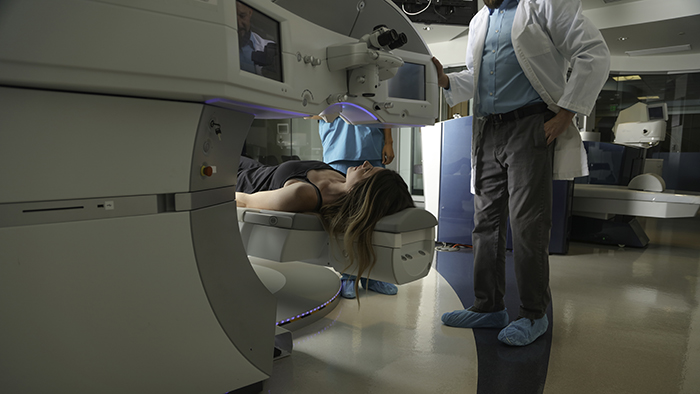With nuclear imaging, the radiopharmaceuticals are detected by special types of cameras that work with computers to provide very precise pictures about the area of the body being imaged.
The amount of radiation in a typical nuclear imaging procedure is comparable with that received during a diagnostic x-ray.
Nuclear medicine studies can help diagnose and treat many diseases.
- Diagnose and treat hyperthyroidism
- Tumor staging
- Detect urinary tract obstructions
- Identify right heart failure
- Measure effectiveness of bypass surgery
- Measure effectiveness of therapy for heart failure
- Detect Chronic biliary tract disfunction
Nuclear Stress Testing
A Nuclear Stress Test is used by doctors to diagnose and monitor heart disease.
During a Nuclear Stress Test, a safe amount of a radioactive drug is injected into your vein which allows the cardiologist to see how well blood is flowing to and through your heart.
The test, usually conducted over two days, consists of taking images of your heart in two phases: a stress phase and a resting phase.

